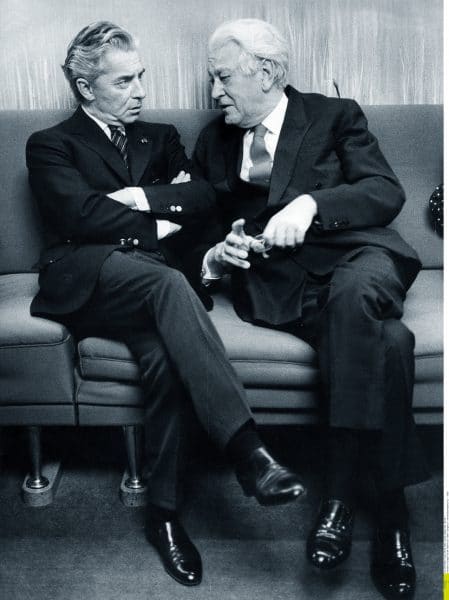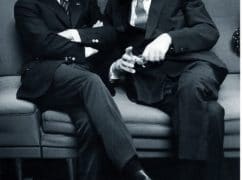The composer in charge of the cultural Cold War
mainJoseph Horowitz has written a lengthy reflection in the LARB on the bon viveur Nicolas Nabokov, cousin of the novelist, close friend of Stravinsky and Prokofiev and US-sponsored Cold War agitator against the music of Dmitri Shostakovich.
His landmark opus … was “The Case of Dmitri Shostakovitch” [sic] in the March 1943 issue of Harper’s — in the author’s opinion, a “thorough and objective investigation” of a “success story” too little scrutinized. Though conventional wisdom framed (and frames) the Soviet 1920s as a decade of radical experimentation, Nabokov presented Shostakovich as an artist born into bondage. He did not partake in the “audacious experimental spirit” of the ’20s in “central and western Europe.” Though his Symphony No. 1, finished in 1925 when Shostakovich was all of 19 years old, revealed great gifts (Shostakovich was widely hailed as a genius), it was “essentially conservative and unexperimental,” “synthetic and impersonal,” “in the long run, extremely dull.” Its “utilitarian” spirit, addressing “large masses of people,” betrayed the bygone Russian intelligentsia, “which comprised in its ranks all that was vital, imaginative and creative in the nation.” Shostakovich himself said “very clearly”: “I cannot conceive of my future creative program outside of our socialist enterprise and the aim which I assign to my work is that of helping in every way to enlighten our remarkable country.” Even Lady Macbeth, which aimed to shock, was “neither particularly daring nor particularly new.” Like everything else Shostakovich touched, it was fundamentally eclectic and derivative.
Nabokov found only “two positive qualities in the music of Shostakovitch.” The first was his “versatility and efficiency”; the second — “to foreigners so surprising” — was “the inherent optimism of his music,” which “drives the young composer to naïve and dated formulae.” Nabokov’s crowning metaphor, endorsed by Stravinsky in a congratulatory letter, read: “It is as difficult to describe the music of Shostakovitch as to describe the form and color of an oyster […] because it is shapeless in style and form and impersonal in color.” He concluded by comparing Shostakovich unfavorably to seven other 20th-century composers, including Walter Piston, William Schuman, and Vittorio Rieti….
Read on here.

Recognise the co-conspirator?
None of Nabokov’s music has survived the test of time.






Comments